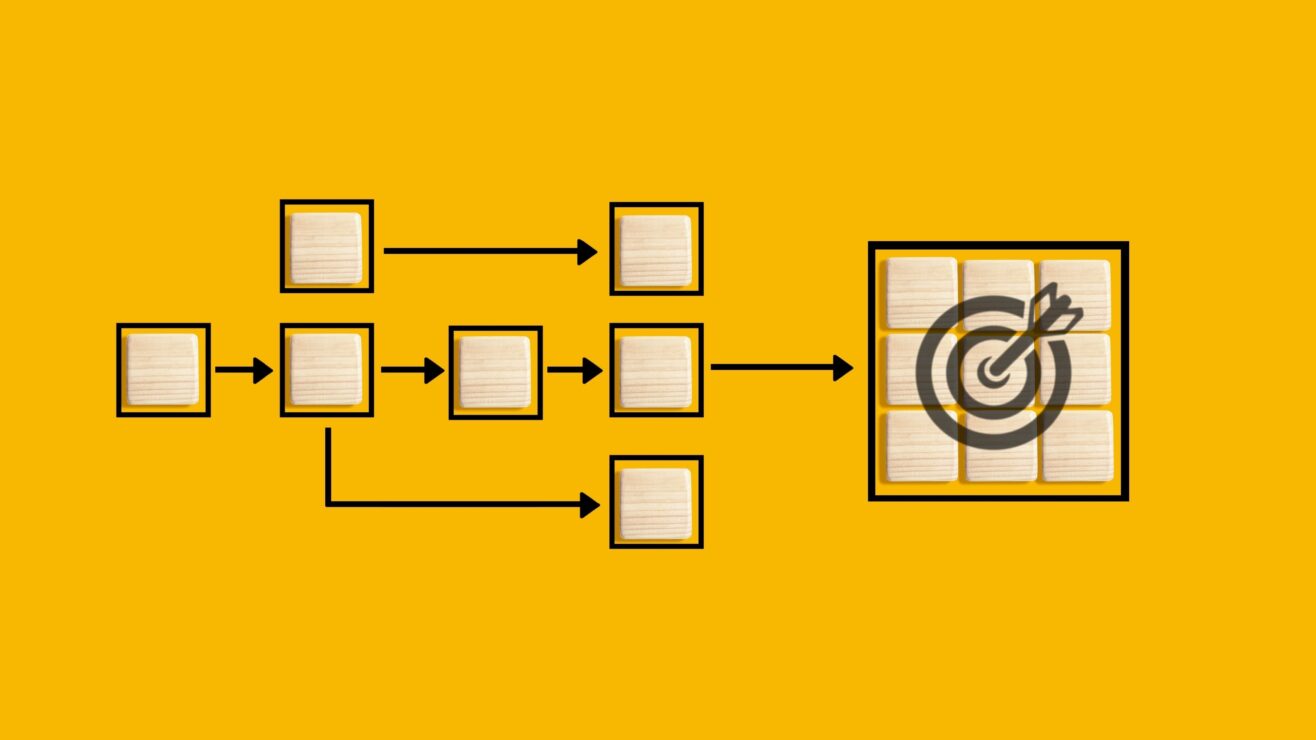There’s a long history of asking students to look back when capturing the “student voice” in UK higher education.
The National Student Survey invites students to look back on their time at university. End of and even mid-module review asks students to reflect on what happened in the recent past. Entire committee cycles are focussed on “review” – look back, synthesize, tweak, repeat.
But what if we are in a period where it’s much more important to look forward? What if the changes we need to make – to courses, support, facilities and assessment – are more about understanding the rapidly changing needs of students emerging from a damaging set of pandemic restrictions?
Nationally, too many assumptions are being made by government that the higher education train will be able to continue running without the need for major interventions in the coming year. That problem dogs us at institution level too.
The danger is that at all levels, the compound impact of disruption to learning, the frustration and anger of students due to “broken promises” and exhaustion of staff having to adapt face to face learning for online delivery, means that we might miss what we need to do now to support the students we have coming.
The danger is that we assume “back to normal” delivery for a cohort of students that will be anything but.
What we need are facts
To help with the problem, we need a forward planning agenda to develop a sector wide strategy to help get higher education back on track – where learning gaps can be identified and bridged, student concerns and issues addressed, and expectations and satisfaction across all levels of study are effectively managed.
Doing this is critical if we are to maintain the integrity of our higher education system, make it fit for purpose, protect its “reputation of value” amongst our current and future students and look after the wellbeing of our higher education communities.
In the absence of a national coordinated approach, unaddressed issues will be pushed upwards to the next level of study creating ongoing problems.
But one way we can start to understand and identify the issues is by surveying our current and incoming students via a national survey – that instead of looking back, looks forwards.
Outcomes to expectations on entry
I have long argued that it is helpful to move focus from understanding student “outcomes” (NSS et al) to “expectations on entry” via a pre-arrival academic questionnaire (PAQ) – to help us improve the experience, progression and success of our students throughout the study lifecycle to help get a sound foundation.
Undertaking a Continuation Academic Questionnaire (CAQ) for returners also provides a helpful learning and wellbeing temperature check.
This type of survey does several things. It is a reflective activity for students to think about their learning experience (past and present), current expectations and ambitions, concerns and issues, and the type of support they think could help them.
It provides evidence in real time for key stakeholders such as course leaders and heads of student support.
Learners are not homogenous but unique because of the wonderful diversity of our student body. But this past year will have created a shared experience like no other.
So a national survey would enable bespoke changes to be made to help provide targeted support for the cohort to come – changes that can be applied nationally, institutionally, and at departmental, cohort and student characteristic level.
Urgently needed
Without doubt, the known differences in prior learning experiences of students on entry to HE prior to Covid19, and financial concerns which impact on progression, retention and attainment, will be exacerbated due to the pandemic.
But we cannot assume that the sector’s pre-Covid19 student experience research, and the relatively small-scale national temperature-check surveys undertaken during the early stages of the pandemic crisis, will still be an accurate reflection of the worries, learning experience, study patterns and work participation of applicants and students this coming year.
In September 2020, Leeds Beckett University piloted a Covid-19 version of the PAQ to understand the concerns of their incoming students as a result of the pandemic. The findings were valuable and informative especially in understanding the prior learning experiences and worries of this specific cohort in starting university. It highlighted differences in student characteristics, notably with highest entry qualification. And the information enabled the university to adapt and evolve the support provided to students entering 2020/21.
For example, it found that 54% of those who were in study in 2019/20 at school or college were not required to undertake any study after the March lockdown meaning they were out of the discipline of undertaking learning and assessment for 7 months before starting their studies. What was also evident was that the “mass migration” to online learning that was said to have occurred of those that continued to undertake study after March, was actually quite small amongst the respondents.
And for those that were in study in 2019/20 prior to lockdown, the most common methods of accessing learning material were handwritten notes followed by a course text book. This highlighted that although students may have social digital skills, it doesn’t necessarily extend to learning. As a result, a range of initiatives were put in place to provide support and bridge gaps.
Forward planning at national level
As useful as this information was in September 2020 to this university, we can anticipate that the prior learning experience of students entering HE in 2021/22 will be vastly different because of the continually fluctuating secondary and tertiary landscape as government approaches change in response to the pandemic.
As a result, lifting and shifting institutional level approaches from one year to the next isn’t a robust or targeted solution. We also must be mindful when developing national level strategies that the experience of students will vary by institution, student characteristic, region and entry qualification. The reality is we just don’t know what our sector student body is thinking or feeling and what their intentions are in 2021/22.
But by undertaking targeted, well-designed sector wide surveys for new and current students, created in conjunction with key stakeholders including student representative bodies, a better understanding will be achieved, enabling more effective planning to take place at national and institutional level.
It would help us:
- Draw attention in the right places both nationally and institutionally.
- Generate some national priorities for support, coordination and funding.
- Give us a rich picture of the impacts of learning loss and help us quantify the digital divide.
- Provide evidence at every level to develop targeted support.
- Understand future study intentions of incoming and current students such as deferral, intermission and withdrawal.
- Understand the skills that have been developed and accrued because of the pandemic that are not part of degree assessment, but need to be recognised.
- Understand how students are feeling – and manage expectations accordingly.
A PAQ for new students could be undertaken after confirmation, and a CAQ for returners undertaken in July. It would be nationally coordinated and implemented within institutions at course level as a course activity.
Critically, it would provide a huge national and institutional level dataset highlighting student concerns, inform policy and strategy at all levels, and enable targeted actions to be put in place for the start of the academic year to provide our students with the best possible support to succeed.













